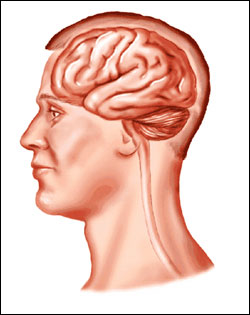ANOTHER ACADEMIC’S RANT about our declining culture sounds like just the thing to send you diving for your Christmas With the Simpsons DVD. But Curtis White is so on point with The Middle Mind: Why Americans Don’t Think for Themselves (HarperSanFrancisco, $23.95), and so funny, that you’re reminded how bankrupt our escape into phony subversion really is. At a moment when Britney Spears commands a full hour on at least three major network “newsmagazines” (maybe more, for all I know, if you’ve got TiVo), the raging blowback from a supersmart guy who refuses to buy into the media-crap combine arrives as a welcome relief. What about the current culture-industry trend, exemplified by the Sunday New York Times A&L section, to treat such trash to serious, long-winded analysis? That’s just a co-opted posture for giddy ironists who heart television, White observes: “Capitulating to the flow of signs and consumer goods is sexy, euphoric. . . . We American workers are more beguiled than we are oppressed.”
White, an English prof at Illinois State, argues that our films, our news media, even the academic world of which he’s a part, have all conspired to eliminate the space for imagination and thought, the space in which people could envision a better life or any alternative to the status quo. The creations of Spielberg, Disney, and their ilk, “are pre-emptive efforts to saturate the field in which the imagination might do its work,” he writes. “This is the televisual deluge. This is communication as domination. We drown at the bottom of Hollywood’s ocean, and all we ever wanted was a single glass of pure water.” Thinking, he claims, has been turned into “a showbiz confidence game overseen by media moguls.” Because of the collapsed distinction between entertainment and art, he writes, “we have nearly no art at all.”
WHITE’S CATCHALL term of culpability for this sad state of affairs is the “Middle Mind,” a rather nebulous concept that he employs to reference just about everything he finds dim or misguided. (The term seems mostly a tissue by which White has joined a half-dozen disconnected essays previously published in the journal he edits, Context.) The Middle Mind is found on public TV and in “city weeklies” (ouch!), two of its most egregious exemplars being Charlie Rose and NPR host Terry Gross. Gross he (rightly) lambastes for her inability to talk to artists about art, always resorting instead to a tiresome inquiry into their personal lives. He also objects to the way she and Rose fawn over great authors and cheap hacks alike, acknowledging no difference between thema “flattening” of cultural categories and intellectual distinctions. If Noam Chomsky and Bruce Willis are packaged into the same bland entertainment, they assume the same (un)importance.
White is at his best when celebrating the power of art “to remind us there is a difference between freedom and repression,” and he has an excellent passage assessing how Radiohead “negotiates,” as the academics say, the contrary forces of technology, convention, and subversion. It’s great watching him take swings at pompous bigwigs like Harold Bloom and mediocrities like New Yorker writer John Seabrook. In the chapter titled “Such an Awesome Site of Resistance,” White argues that both the postmod theorists and the conservative Lynne Cheney preserve-the-literary-canon types have helped to kill off reading, their at-odds methods each serving to suck out the blood, the “destabilizing” potential, of great literature.
BUT WHITE RUNS into trouble around, well, the middle of his collection, when he starts addressing the “poverty” of our “political narratives.” Here, our failures of imagination seem less important than our failures to engage his predictably leftist viewsthe world’s problems all stem from Americans’ selfish, wasteful lifestyle, our evil corporations, and blah, blah, blah. His writing devolves into a somewhat bizarre string of diatribes relating to airline crashes, the “holocaust” of “roadkill” (I only wish I were joking), and Internet search engines that display paid-for results.
If that sounds a bit like an angrier version of a Seinfeld rant, it’s because White is really better as an anguished comedian than as a systematic thinker (though I suppose that won’t win him tenure). Indeed, Mind has the cadences of a “Didja ever wonder . . . ” stand-up riff: Why can’t anything break through our climate of media apathy and clutter? Why is it that our highest public officials can lie brazenly and suffer no consequences? Why can’t efforts at social change gain any traction the way they once did with abolition, suffrage, and civil rights? Why is it that Americans seem so utterly resistant to thought of any kind? White is no Bill Hicks, however; he delivers few devastating punch lines or conclusions. But for those of you who are similarly riled up, he offers a great deal of fellow feeling.
Curtis White will appear at Elliott Bay Book Co. (101 S. Main St., 206-624-6600), 7:30 p.m. Fri., Nov. 28.








